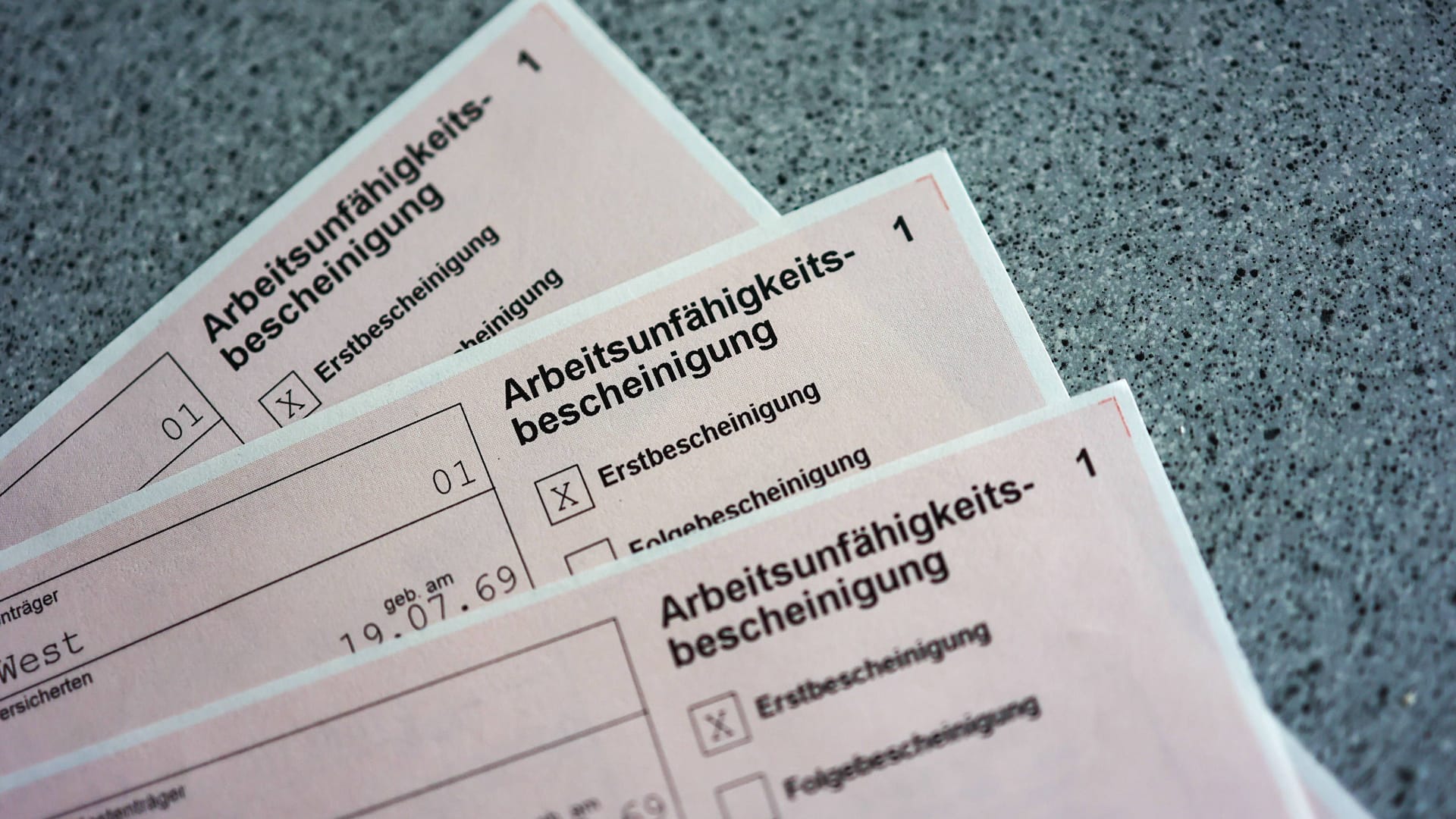Specialist lawyer explains
No wages on the first day of the disease? When that is already possible
Updated on March 29, 2025 – 11:18 a.m.Reading time: 3 min.


No wages on the first day of the disease? This was last discussed. There are already cases in which employees do not get wages in the event of illness.
If you are sick and cannot work, you usually get your wages. This is regulated in the so -called continued payment law. This always applies if employees are prevented from working due to an illness due to incapacity to work, explains Alexander Bredereck, specialist lawyer for labor law in Berlin.
The prerequisite is that employees do not affect their own fault. The claim is limited for up to six weeks, after which the health insurance usually takes over and pays sick pay.
In the past few weeks, a proposal that employees should no longer have wages for the first day of the sick or even the first three days of illness. What many employees do not know: Even now, this is already possible in some cases, even if there is a certificate of incapacity for work (AU) – in the following:
In principle, the entitlement to continued payment of wages only arises after a four -week continuous duration of the employment relationship, as Alexander Bredereck explains. Means: Anyone who gets sick in the first four weeks of a new employment relationship is usually not entitled to wages for the days on which they are sick.
In this case, those affected can apply for sick pay as a wage replacement benefit from their health insurance. The sickness benefit is 70 percent of gross income, but at most 90 percent of the net.
A similar rule applies if employees fail again within a certain period of time due to the same illness. “If an employee becomes unable to work due to the same illness, there is a further entitlement to continued payment of wages only under certain conditions,” said Alexander Bredereck.
- If there was a break of at least six months between the two illnesses, in which the employee was not unable to work due to this illness,
- Or if a period of twelve months has expired since the first incapacity to work as a result of the same illness.
If the period for continued payment has expired, employees receive sickness benefit, according to the specialist lawyer.
In this case, the employer may ask which diagnosis of the AU certificate is based. “However, employees are not obliged to respond to this and should usually not do so,” advises Bredereck.
However, the employer could contact the health insurance company and inquire here whether there is a medical connection and can therefore be credited. The health insurance check this and, if necessary, add the treating doctors and the medical service of the health insurance companies (MDK).
“The employer is then informed whether the incapacity period to be checked can be credited, partially credited or not credited,” explains the specialist lawyer. Based on the test result, the employer then decides on the continued payment of wages.
The employer has various options for questioning a certificate of incapacity for work. On the one hand, he can switch on the medical service of the health insurance companies (MDK) and obtain an expert opinion. “A toothless tiger,” says Alexander Bredereck. “The stricter reaction: the employer hires the continued payment.”
An employer can refuse to continue paying wages in the event of doubts about incapacity to work until she has actually been demonstrated, according to Nathalie Oberthür, specialist lawyer for labor law. Affected workers must then sue their employer for continued payment of wages before the labor court. In this process, the employer must shake the evaluation value of the incapacity for work, says Bredereck.
- Extend sick leave: This is how it works
- Missing notification by click: This is how the extension works digital
“There are no simple doubts,” says the specialist lawyer. Instead, the employer must present circumstances that arouse reasonable doubts about incapacity to work. For example, if the employee is written on the first day after termination and is unable to work until the end of the employment relationship. Even if employees threaten to disease in advance, according to the specialist lawyer, this can shake the evaluation value of the AU.
If the labor court sees the evaluation value as shaken, the employee must give the treating doctors from confidentiality in the process – “in the end there is usually deciding their statement on incapacity to work,” said Bredereck.





